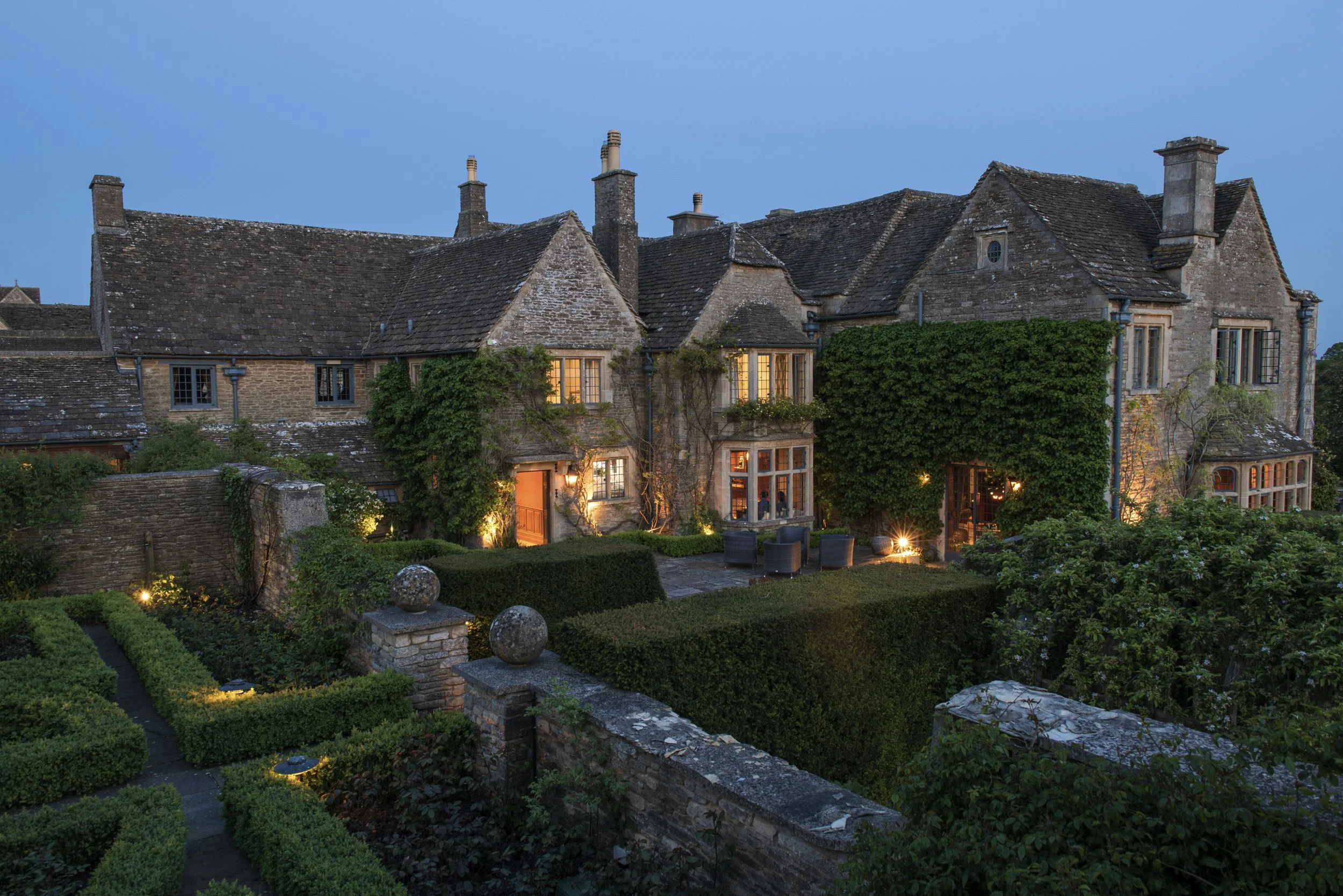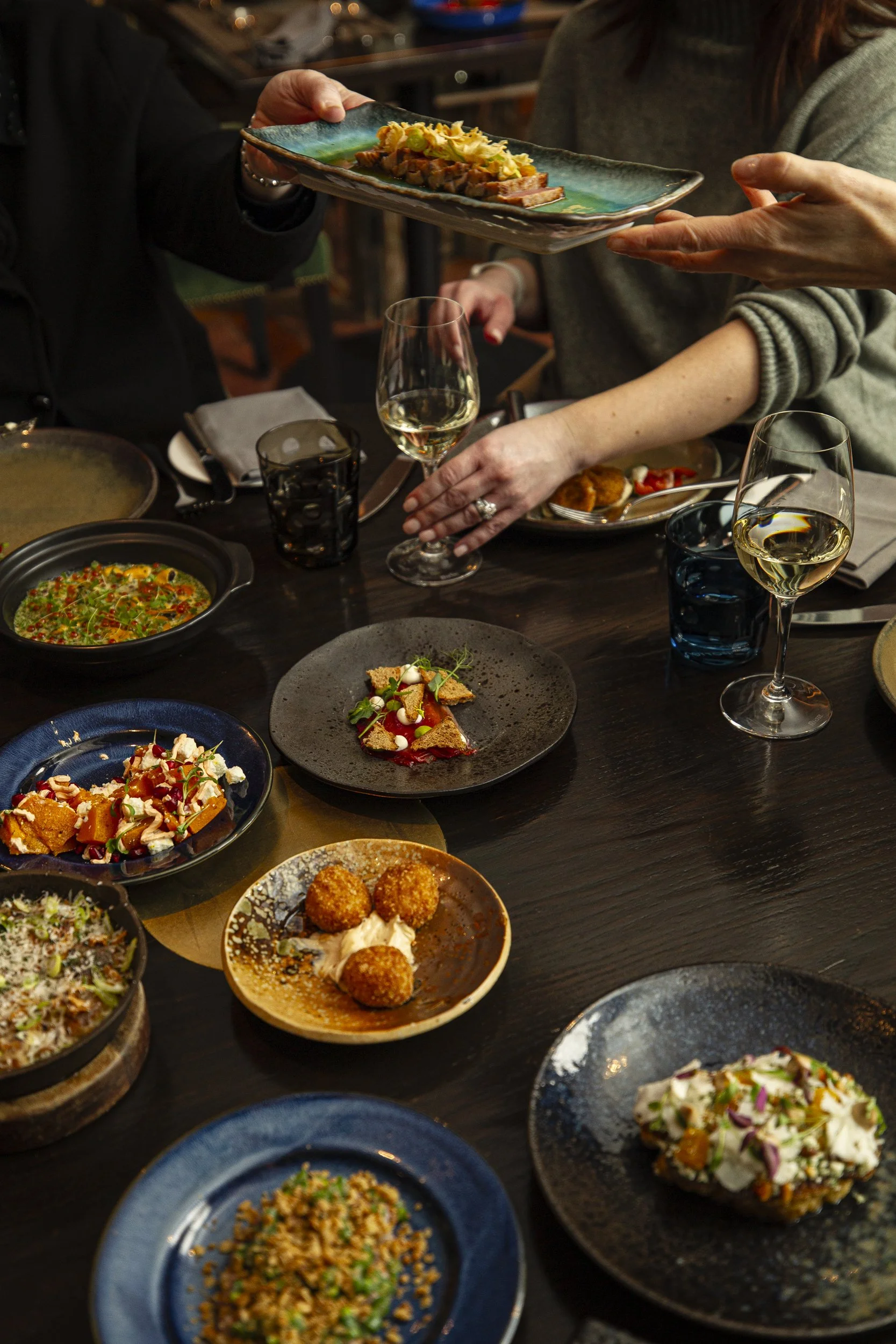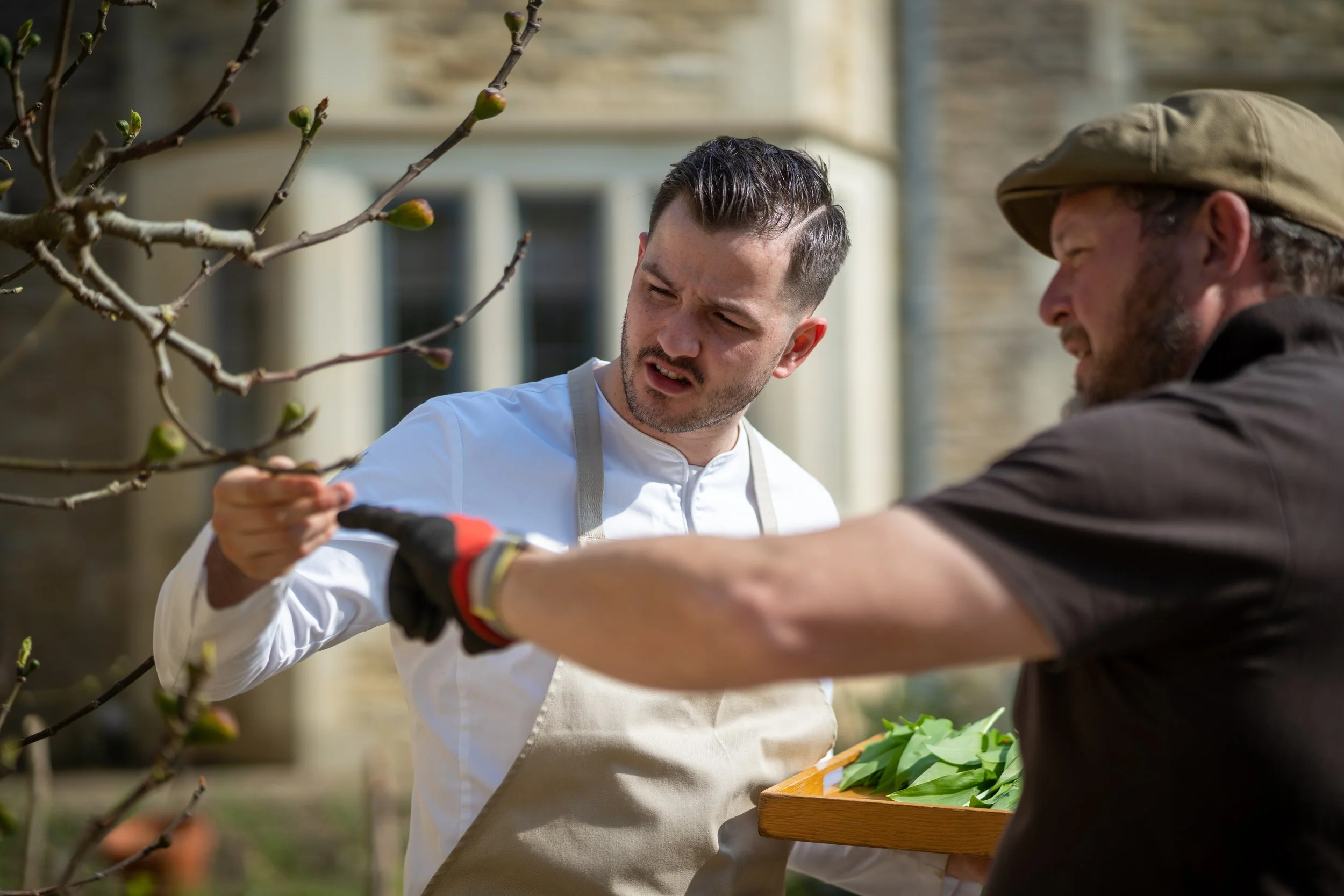Beyond the Pass: Ricki Weston on Leadership, Sustainability, and the Next Chapter of Fine Dining
In conversation with Tom Owtram
At Whatley Manor in the Cotswolds, Ricki Weston leads with a philosophy that blends precision with purpose. His food reflects a deep respect for seasonality and sourcing, but it’s his focus on people - from nurturing talent to creating a sustainable culture in the kitchen - that defines his approach.
In this conversation, Ricki reflects on the path that led him to Whatley, the lessons that shaped his cooking, and how leadership, creativity, and responsibility are evolving in the world of fine dining.
On Beginnings
Ricki, let’s start at the beginning. What first drew you into the world of food? Was there a moment in your childhood when cooking or eating became something more than nourishment?
For me, I never really thought of hospitality or food as a career path growing up. The turning point came almost by accident when at school. We had to organise our own work experience and as I hadn’t sorted anything in time, my school ended up placing me in a local restaurant. As soon as I arrived, I was hooked on the adrenaline and intensity of the kitchen. The energy was electric and suddenly food wasn’t just about eating anymore. It was about craft, teamwork and creating experiences which made people feel something.
Growing up, were there people – family, mentors, or even chefs you admired – who shaped your relationship with food?
Growing up not so much, as I mentioned, I never really looked at other chefs or restaurants till I was in the industry. Restaurant Sat Bains played a huge part in the way I thought about cooking and tasting food – it opened my eyes to the intricacy and artistry of fine dining. The approach there was not just about recipes or techniques, but also mindset, attention to detail and respect for the craft, extracting every ounce of flavour from each element on the plate.
The Making of a Chef
You began your career in 2010 and quickly found yourself in some remarkable kitchens. Looking back, what did those formative years teach you about craft, discipline, and creativity?
I think for me, being able to be part of such a talented team so quickly was incredibly exciting and showed me what was possible if you fully committed yourself to this industry. Getting my head down and learning as much as I could from the brilliant chefs and managers around me gave me a strong start. Back then, we were doing much longer weeks than what’s expected now, and in some ways, that time was invaluable. Spending so many hours in the kitchen day after day meant that I experienced a huge amount in a short time and gave me this obsessive passion for cuisine.
Your time at Restaurant Sat Bains is often mentioned – what was it about that experience that left such a lasting mark on your style and philosophy?
Everything. Everything was important at Sat Bains. From the way we folded the cloth on the bench to the placement of a label, all these elements came before the cooking even started. Sat has such a great way of taking something simple and turning it into something extraordinary. The mindset installed there is world class.
Finding a Voice at Whatley Manor
The Dining Room retained its Michelin star under your leadership almost immediately. What did that recognition mean to you and your team at such an early stage?
It was huge, and to have Michelin recognise the work we were doing straight away gave us such confidence. I was incredibly proud of the team and happy for the hotel. It was the best way to start, and this recognition gave us the momentum and belief to keep pushing.
Cooking with a Sense of Place
Your menus now have a strong emphasis on British provenance. What does “cooking with a sense of place” mean to you?
We have such brilliant produce available to us around Britain and more recently, I’ve been lucky enough to visit suppliers to see first-hand the dedication behind what they do. Here in the Cotswolds, we’re also blessed with incredible foraging opportunities, along with Whatley’s own kitchen garden which we try to utilise as much as possible.
Can you share the story behind a recent dish that feels especially close to your heart?
We recently travelled to Cornwall to catch a British blue fin tuna, which have recently started returning to British waters after decades of absence. The opportunity to use such an extraordinary ingredient on the menus feels really special. We have some fun with this dish, serving it as a caviar trifle which uses the belly, some coriander and padrón peppers.
Grey’s recently introduced a new social dining concept – more relaxed, more playful. What excites you about that shift, and how does it balance with the precision of fine dining in The Dining Room?
I absolutely love Grey’s. Food has always brought people together for celebrations and other events. When we reimagined Grey’s, I wanted to lean into that feeling and embrace the idea of family-style dining, sharing plates and food that is simple but done well.
Sustainability and Responsibility
Sustainability is a word often used in hospitality, but for you it feels deeply embedded. Where does that commitment come from?
It’s part of the culture and ethos here at Whatley Manor. The commitment comes from our owner and over time, it has become integral to the way we do things. For us now, sustainability isn’t a separate initiative, it’s simply best practice. It informs how we source, how we operate, how we think about waste.
How do you see your role, not just as a chef, but as a custodian of land, produce, and people?
Again, it’s just about doing the right things. That means looking at seasonality, using what we can from the garden and ensuring work life balance for the team. My role has evolved from simply cooking and it continues to change. I am constantly trying to look at the bigger picture of everything we do, always questioning whether it’s still the right way of doing it.
Leading the Kitchen
Beyond the food itself, you’re leading a team. How would you describe your style as an executive chef?
We empower people as much as we can in the kitchen. Everyone can learn from each other and that’s the culture we set with chefs from day one. There’s no space for egos or shouting. I always said I wanted to manage and teach in an environment that encourages development rather than fear.
The industry has faced real challenges around staffing and wellbeing in recent years – what do you feel needs to change in order to nurture the next generation of chefs?
I think the industry has and continues to change. People don’t want to work 70–80-hour weeks anymore, and the focus has rightly shifted to work-life balance. Our managers and leaders in the cuisine also must evolve with this. The challenge is to preserve the core values we hold of chefs – discipline, respect and passion – whilst building a healthy and more balanced culture.
Looking Ahead
What keeps you curious? Where do you draw inspiration from outside of the kitchen?
Nature is my biggest inspiration. It may sound cliché, but where we are situated in the Cotswolds there are always different parts to explore, especially with two young kids running around! I also look outward to other remote restaurants both in the UK and abroad. It’s always interesting to see how different cultures interpret different ingredients and methods.
How do you imagine the next chapter for Whatley Manor – and for yourself?
Whatley Manor will always be a symbol of excellence in the industry. I think everything within fine dining will have to change in the next few years, but what we offer as a product will continue to evolve across the food, service and overall experience. I am excited about evolving my style, shaped by the different products that come on board, the change in seasons and what becomes available.





